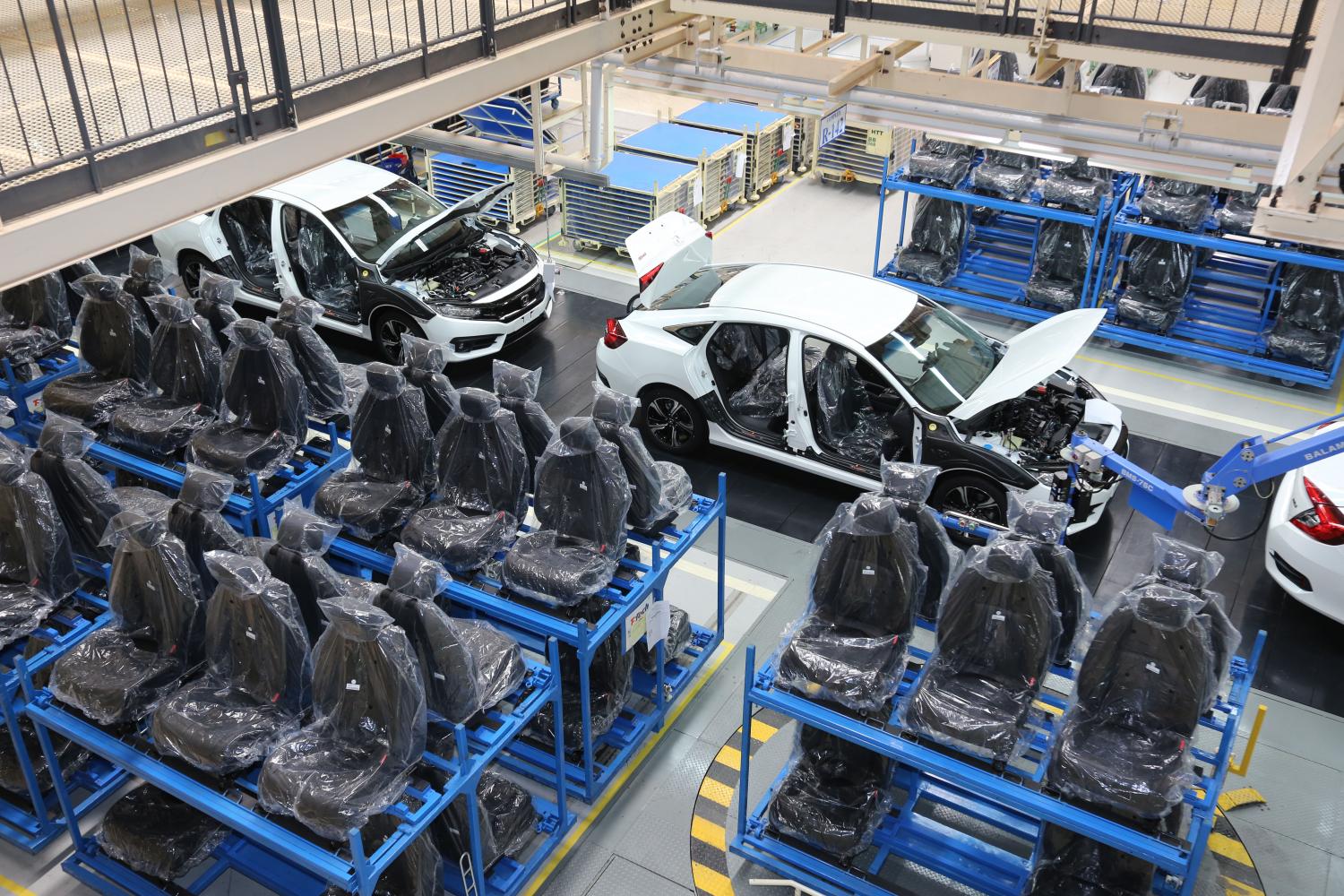
Thailand's Manufacturing Production Index (MPI) fell by 3.71% year-on-year in October as some factories shut down for maintenance, but the Industry Ministry remains optimistic about the growth of the full-year MPI.
Major maintenance of petrochemical and plastic bead production facilities lowered the October index to 93.89 points, down from 97.89 points in September, according to the Office of Industrial Economics (OIE).
"They should resume operations in November," said OIE director-general Warawan Chitaroon.
She expects the MPI for November, which will be announced later this month, to grow again, following an increase in economic activities, particularly driven by more tourist arrivals.
From January to October, the MPI increased by 2.2% year-on-year to 99.06 points. Capacity utilisation stood at 63% on average, according to the OIE.
Mrs Warawan said she believes the 2022 MPI will grow by 1.9% as Thailand is on a path of economic recovery.
Car manufacturing was one of the industries that contributed to the October MPI.
According to the OIE, car production expanded by 9.8% year-on-year, especially in the pickup and mid-sized car categories, as the semiconductor shortage eased.
More semiconductors were supplied to automakers in September and October, the Federation of Thai Industries' Automotive Industry Club said earlier.
If there is no serious chip scarcity for the rest of this year, the 2022 car production target of 1.75 million units is attainable, the club said.
Palm oil production also increased by 31.8% year-on-year, driven by higher demand from the industrial and energy sectors.
Electronics and circuit board manufacturing increased by 7.47% year-on-year as the global digital product market continued to expand for the 21st consecutive month.
In the agro-industrial sector, animal feed production expanded by 8.63% year-on-year because farmers have been raising more broilers to meet higher demand.







